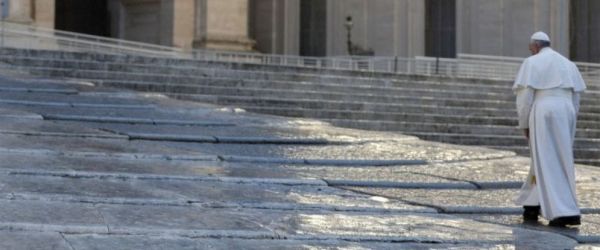In the Liturgy today we read chapter 15 of the Gospel of Luke, which contains three parables of mercy: the lost sheep, the lost coin, and then the longest of them, characteristic of St Luke, the parable of the father of two sons, the “prodigal” son and the son who believes he is “righteous”, who believes he is saintly. All three of these parables speak of the joy of God. God is joyful. This is interesting: God is joyful! And what is the joy of God? The joy of God is forgiving, the joy of God is forgiving! The joy of a shepherd who finds his little lamb; the joy of a woman who finds her coin; it is the joy of a father welcoming home the son who was lost, who was as though dead and has come back to life, who has come home. Here is the entire Gospel! Here! The whole Gospel, all of Christianity, is here! But make sure that it is not sentiment, it is not being a “do-gooder”! On the contrary, mercy is the true force that can save man and the world from the “cancer” that is sin, moral evil, spiritual evil. Only love fills the void, the negative chasms that evil opens in hearts and in history. Only love can do this, and this is God’s joy!
Jesus is all mercy, Jesus is all love: he is God made man. Each of us, each one of us, is that little lost lamb, the coin that was mislaid; each one of us is that son who has squandered his freedom on false idols, illusions of happiness, and has lost everything. But God does not forget us, the Father never abandons us. He is a patient father, always waiting for us! He respects our freedom, but he remains faithful forever. And when we come back to him, he welcomes us like children into his house, for he never ceases, not for one instant, to wait for us with love. And his heart rejoices over every child who returns. He is celebrating because he is joy. God has this joy, when one of us sinners goes to him and asks his forgiveness.
What is the danger? It is that we presume we are righteous and judge others. We also judge God, because we think that he should punish sinners, condemn them to death, instead of forgiving. So ‘yes’ then we risk staying outside the Father’s house!
[Pope Francis, Angelus 15 September 2013]












